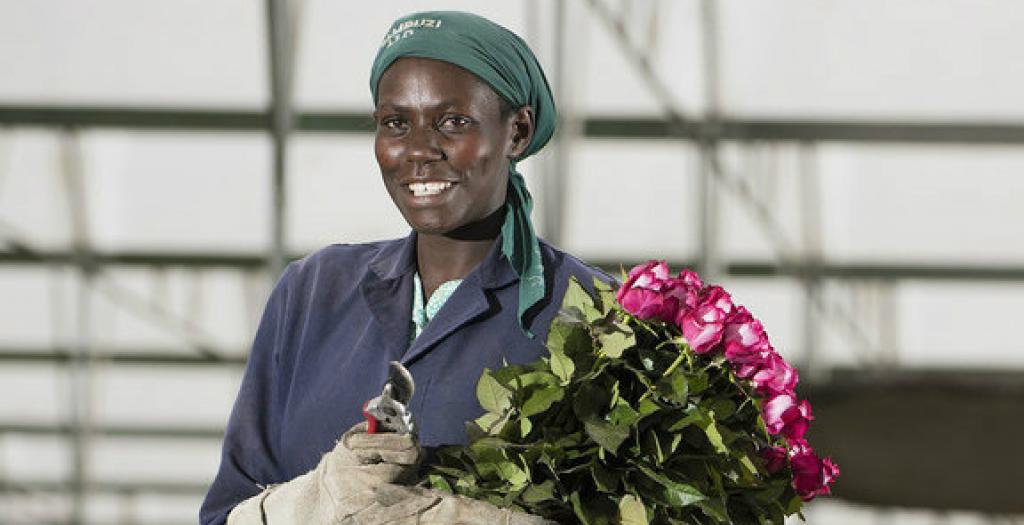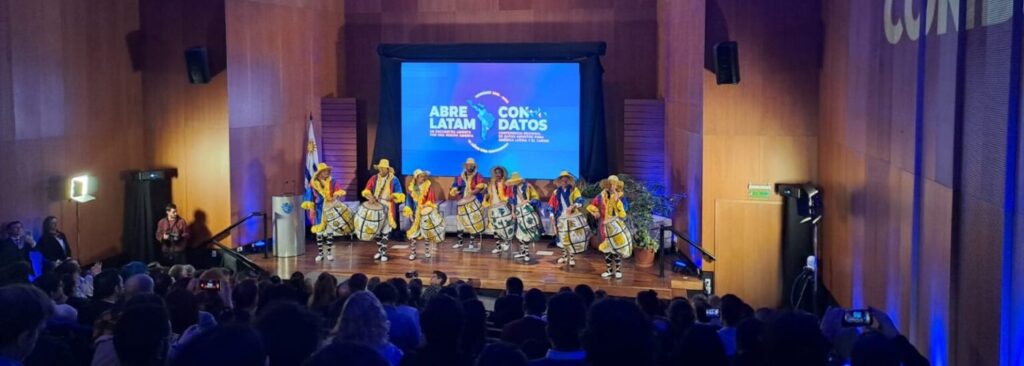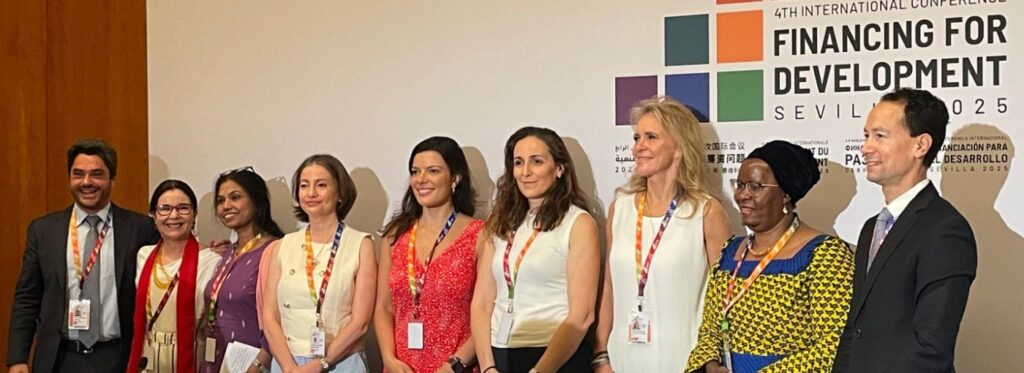Personal Story: Never working anywhere else again!
Their working day starts at 7:30 am. Julia joins the other rose pickers in one of the large greenhouses. Harvesting is done at a quiet pace; selecting the right roses is a very precise job. Everybody wears a long work coat, a headscarf and two leather gloves: one short one to cut the flowers with and a longer one to hold the bunches of roses. Julia is team leader; she is responsible for a group of five pickers and can provide first aid in case of any accidents. She is also the spokesperson for her team when she communicates with the managers of the department and vice versa.
High standard
‘The company has grown a lot’, explains Julia, while she is carefully cutting a large pink rose. ‘Both in terms of size and in the way we work. In the past, we as employees were never involved in any decisions. We did not have a say in the day-to-day running of the business. But now every department has representatives who make arrangements with the managers on behalf of all the employees.’
‘The standard is much higher now compared to when I started working here fifteen years ago. There are good facilities, such as a lunch canteen and a medical clinic.’ According to Julia, the good working conditions are partly thanks to certification. ‘I am very happy about Fairtrade, for example. The employees and the community are benefiting directly from the premiums that we receive because of that.’ The employees of Tambuzi decide for themselves what these premiums are spent on. Think of funding local education, or making solar panels and small gas ovens available to employees at a reduced price. These may seem small measures, but they can make a significant difference in the lives of women like Julia.
Good to each other
Julia has a two-hour lunch break to look after her youngest child who is still breastfed. This certainly makes the life of a working mother a lot more enjoyable, she confirms. Her net income is about 100 euros per month. This is a good wage for Kenyan rose pickers. ‘Because my husband and I are both working here, we can make a decent living. Our children can go to school and in the future maybe even to university, just like the children of some of our colleagues.’
At 4 pm the working day ends. On their way home, Julia and Steven pick up their children. Two years ago the young family was hit by a small disaster: their house burnt down to the ground. The Gichuki family were left with nothing. ‘Tambuzi supplied us with new building materials, a new gas cooker and a solar panel. We paid the company back in installments. They really helped us out a lot then. ‘After being here for fifteen years, I can’t imagine wanting to work anywhere else. We have a good life here.’








